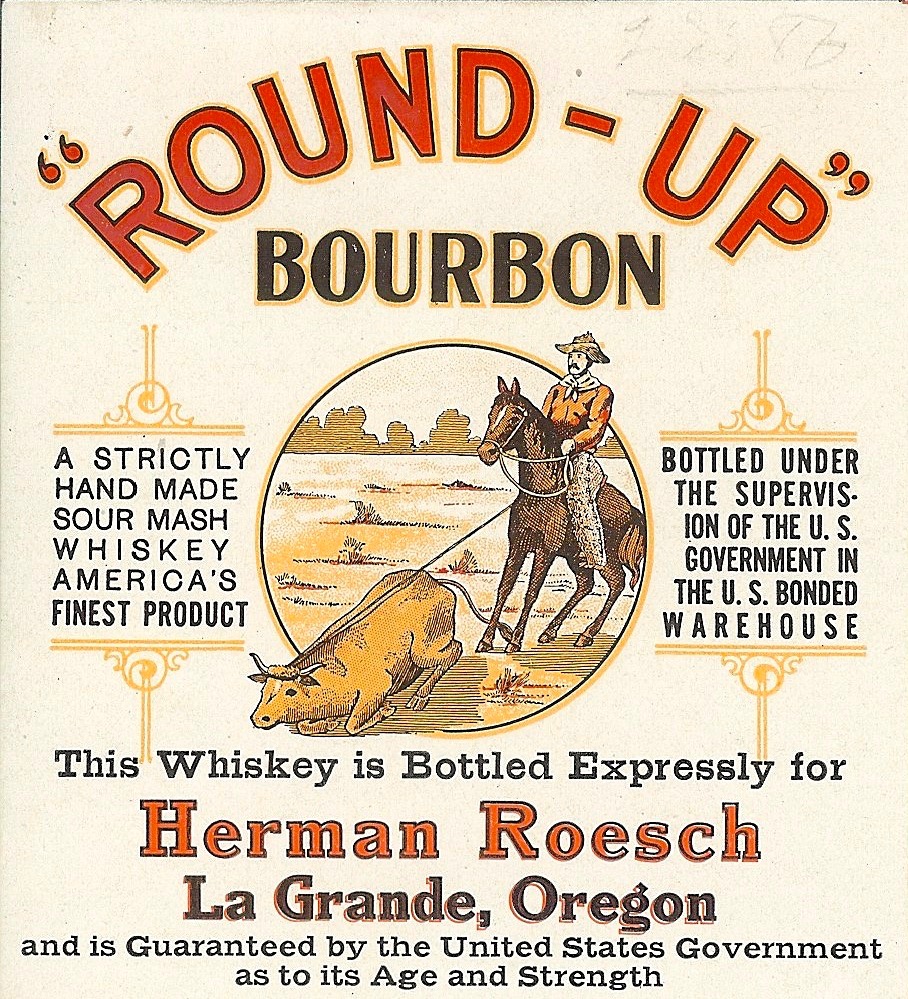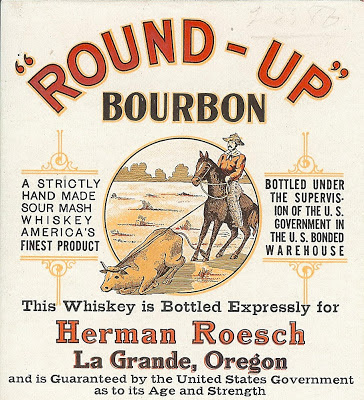Last Round-Up in La Grande

A good deal more research would help this story, but there’s enough at hand to justify putting something down. I recently acquired a small cache of food-related paper ephemera of the label variety (thank you, Corinna, for both your foresight and your more recent insight!). The group includes this small but flashy item, which represents whiskey consumption in La Grande, Oregon, pre-1916.
Herman Roesch was the nephew of Julius Roesch, who was born into a Catholic family in German in 1862, came to the United States about 1876, and by 1880 built a brewery in La Grande “before he reached his 20thbirthday,” according to his obituary in the La Grande Observer (April 22, 1960!). The brewery must have made some accommodation with local option and statewide prohibition (January 1, 1916), for it survived until 1921.
It seems that by 1922, Marcus (the son of Julius) operated an auto dealership in the city, and that his cousin Herman ran a lunch counter nearby. This information is synthesized from Inside the Klavern: the Secret History of a Ku Klux Klan of the 1920s, edited by David A. Horowitz (Southern Illinois University Press, 1999). Based on the minutes of the La Grande chapter of the Klan, the book demonstrates that many of the auto dealer’s mechanics were Klan members. While the Klan notably promoted the interests of white citizens, its pointed Protestantism, and its emphasis on stamping out assorted sinfulness, is less known today; in Oregon, much Klan effort was directed against Catholics, and against perceived immoral behavior. In La Grande, the Klan-member auto mechanics stopped going to Herman’s lunch counter, despite being employed by Marcus, who was quite aware of the Klan’s presence in his shop.
In some kind of ironic happenstance, Herman Roesch shows up in the North Powder News of November 20, 1926, after he was badly injured in an auto wreck in which a local farmer died and two women were injured. “Traffic officer Walter Lansing visited the scene and it is reported, secured one bottle of moonshine liquor which is believed to have figured in the cause of the accident.” Of course, this might well have happened had he still had access to decent whiskey that was “bonded under the supervision of the U. S. government in the U. S. bonded warehouse.”
